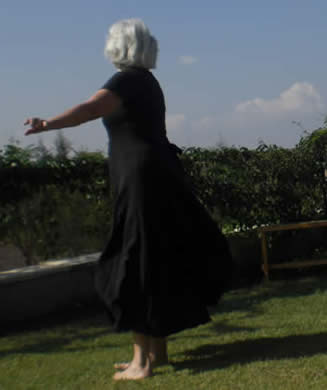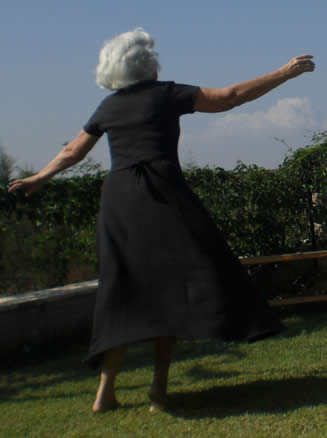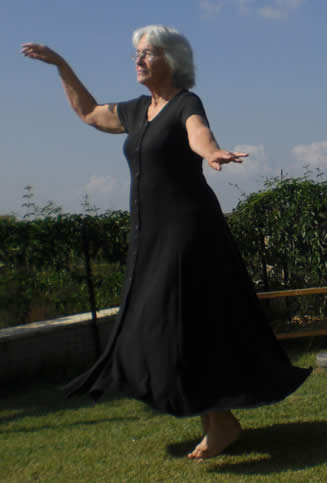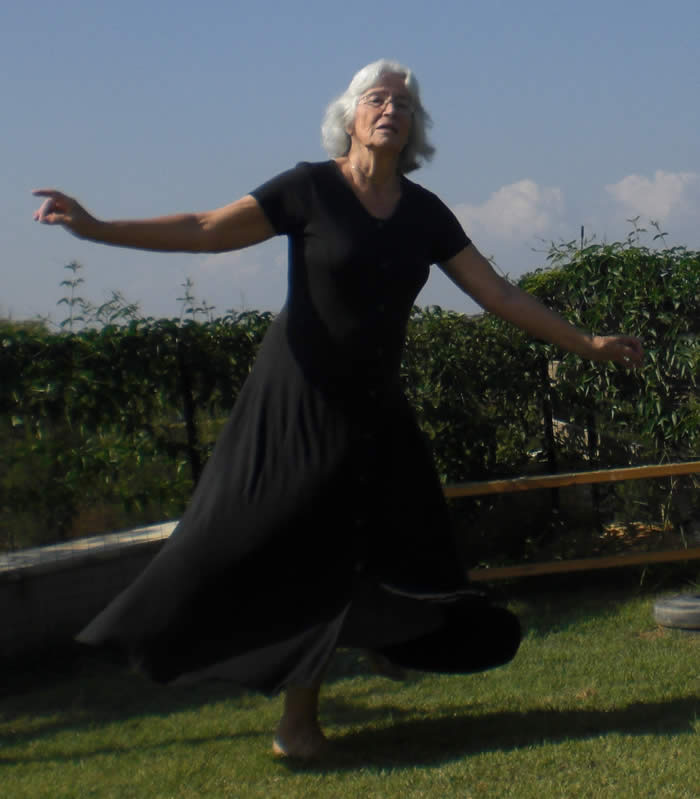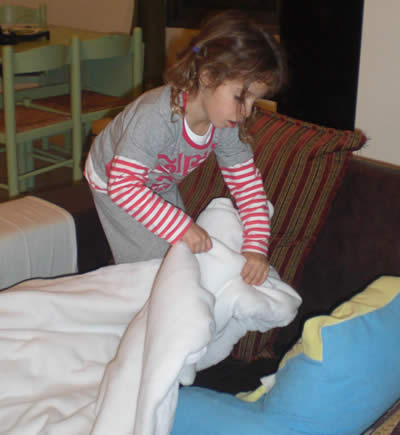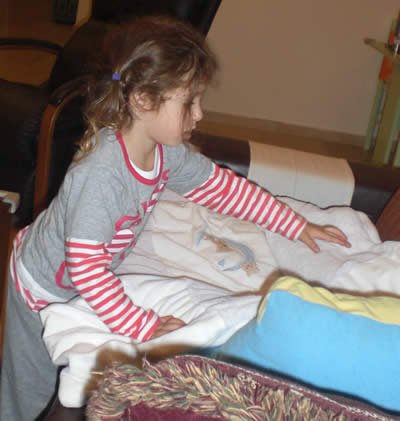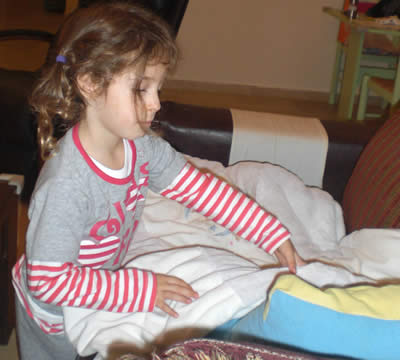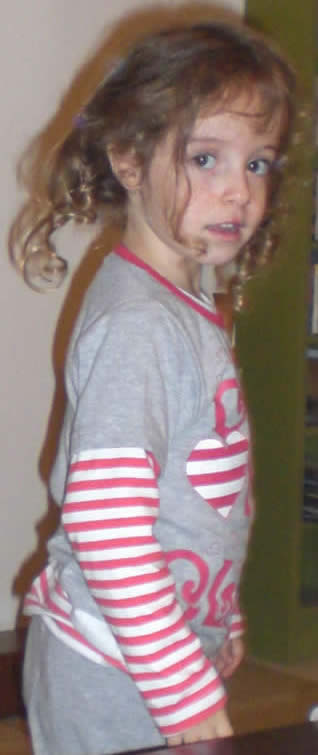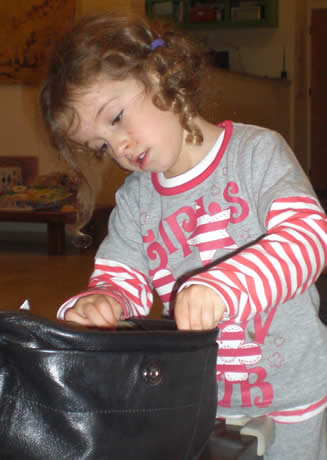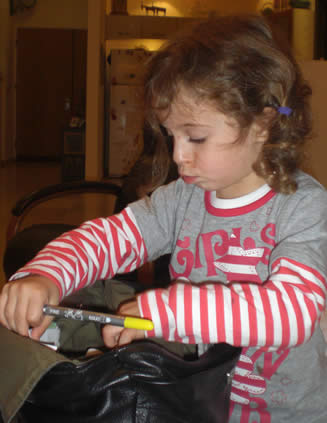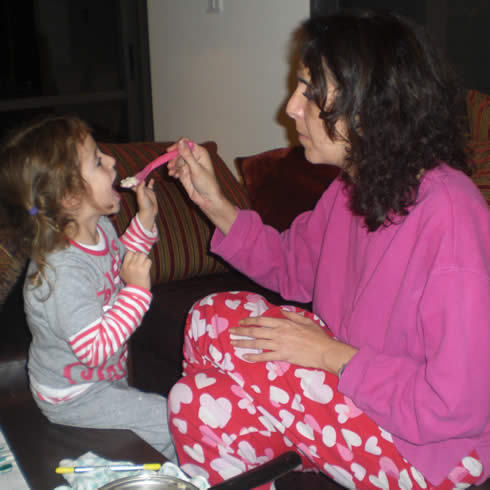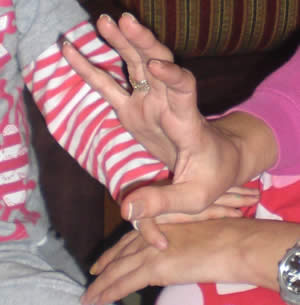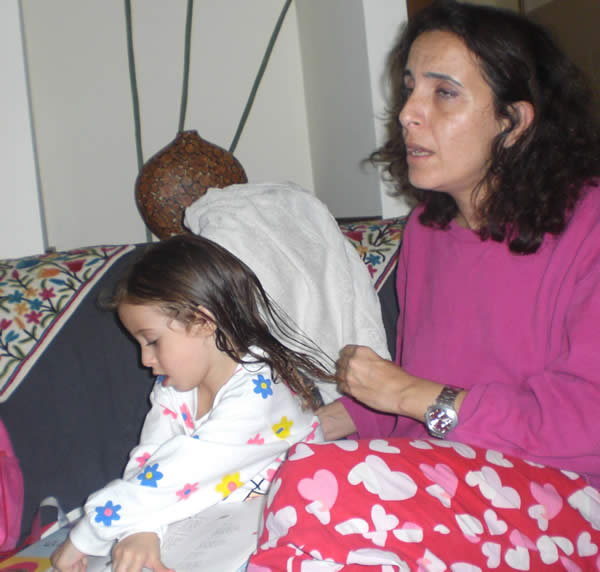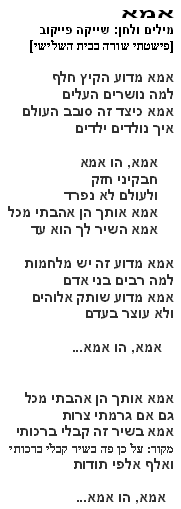| The
Purpose of HEALING - K.I.S.S.
- as stated 12 years ago - was and is
to help me and my potential P E E R s
"to HEAL ourselves into WHOLEness,
and - by extension - all of CREATion!" |
|
I focus my experiencing and awareness on being
"a pioneer of Evolution
in learning to feel":
I let my Body vibrate and my Heart 'womb'
pain, shame, fear, boredom, powerlessness,
so feelings can >heal >guide>fulfill>evolve,
and ~~~ offer ~~~"goldmines"~~~ to us all!!
"I
want you to feel everything, every little thing!"
|
|
K.I.S.S. -
L O G 2
0 0 8
Keep It Simple Sweetheart
| |
1
|
2
|
3
|
4
|
5
|
6
|
7
|
|
|
1
2
3
|
How
Learn
And
|
I
The
Train
|
Heal
Conditions
In
|
Myself
For
Creating
|
|
Whole
On
Conditions
|
Self-acceptance
Earth
Daily
|
Click!
|

Then those who see Ha-Shem, will talk
among each other,
and he listens and he
hears
yatakaalamuna allathina
yarau'na-hu ,
va-yusri va-yasma'
Dann die IHN schauen, werden reden miteinander,
und er lauscht und er
hoert
Puis ceux qu'ils voient Ha-Shem, se parlent
l'un a l'autre
il entends,
il ecoute
|
|
Intro
to
k.i.s.s.-l o g + all
dates
~ Library of
7 years ~ HOME
~ contact ~
SEARCH
( of Latin characters only!) my
eldest granddaughter's video-gallery
|
|
2008
October 31
Cheshvan
2
Friday-Shabbat-Eve
|
|
|
Actions:
Kisslog: healing-creating
TV & Internet: learning
Dancing, Playing |
Interactions:
with Mika and Efrat
visit
at sheep farm neighbors
Rina & David Cohen, Ahmed, Arab deaf-mute shepherd from
Budrus
Skype from Immanuel |
|
The FOCUS of MY INTENTION
TODAY
Know exactly what you want, communicate clearly what you want,
then get out of the way, live and play, and let happen what
may
9:27 [after
having sculpted the "akedia-zest" frame below]
I desire to no longer try to change
the reasons (patterns, beliefs, judgments) for
choking feelings
but to feel, move, accept them - vicariously - for all humans
who are afraid to feel "the Mother".
I desire to contribute
to human evolution: the capacity to LIVE zest-full-ness and
heshek
as an ongoing vibration of the heart, ongoing like the vibration
of breathing in & breathing out!
I desire to practise this today while alternating between being
al-one & being with Efrat & Mika |
|
Practicising
"zest and heshek" - the shadow on the earth is long....
|
hodayot [thanksgivings] for
today
My Body, my Partner,
my God
I give thanks to your smooth, balanced
interior movement of our bowels
as to your exterior movements of our limbs & torso, of
our behind & head
please let us always stand and move upright like zest-full
little Mika,
orienting ourselves by sensing the vibration of zest &
heshek in the heart
as focused in that mysterious "Aya"-point
between our shoulder-blades
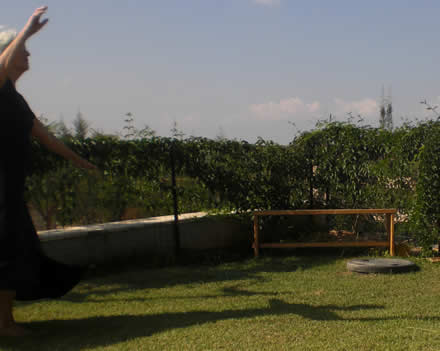
|
Akedia and Zest: Nourishment
from Others and Finetuning to my Present
|
Yesterday there was
a passage in a 3SAT program
about the life of monks
which extremely intrigued me.
Zurück zur Demut vor Gott und
zurück zur Armut war die Devise der Zisterzienser. Das
streng geregelte Leben, ihre Arbeitsteilung und ihr Fleiß
erwiesen sich als äußerst effizient. Ihre Klöster
waren wie moderne Betriebe organisiert. Sie waren wirtschaftlich
und in der Forschung erfolgreich. Strenge und Einfachheit beeinflusste
auch die Maßstäbe für ihr ästhetisches
Empfinden. Ihre Vorstellungen von Baukunst haben die gesamte
europäische Architektur beeinflusst.
I try to capture the intriguing passage from the 3 SAT video
Like a virus in many a monk's life: Akedia... it
leads to grumbling like "the bread is bad", also to
curiosity and "gossip in the corridor", to Abstumpfung
(induration, act or process of
becoming rigid or hard; callousness, lack of feeling )
and finally to malicia, doing evil for evil's sake.
I try to learn more from the Internet
akedia
Akedia (in Latin, accidie) is literally fatigue or exhaustion,
but in technical usage refers to the spiritual and physical
lethargy which can plague those pursuing the eremetic life.
The reference in Psalm 90 (91 MT) to the "demon of noonday"
is traditionally identified as akedia. It can take the form
of listlessness, dispersion of thoughts, or being inattentively
immersed in useless activity.
Akedia
Or The Demon of Boredom
The lack of motivation, mental asphyxiation
and exhaustion lead to a state that is in fact a spiritual
illness. See how you can fight it. Sloth, apathy,
boredom. They have been in fashion up to these days. The Greeks
used to call it Akedia, or the demon of boredom. It referred
to a great decrease of attention, a lack of interest. So it
is a feeling close to despair and discouragement, when the sufferer
of this "disease" feels like doing nothing at all.
According to the Christian tradition, the first one to speak
about akedia or apathy was Origen. He thus spoke of
the temptation of Jesus in the desert. He defined akedia as
lack of focus, of vigil, drowsiness and dizziness. Then
Evagrious referred to the most significant temptations
that a monk has to fight against and conquer. He mentioned
eight passions, among which he included apathy. It is seen as
a demon who invades the believer, blinding the eyes of his heart
and weakening his spirit and mind, bringing him close to depressive
thoughts. The sufferer of akedia thus loses his joy
of living, the joy of salvation, or any feeling that made his
life full of hope and happiness.
Inspired by Psalm 91, Evagrious chose to define this demon
as the "midday demon", as he usually appears in the
middle of the day, when the weather is particularly hot, especially
in the desert, and when the person who fasts loses his desire
to continue such sacred ritual.
Apathy can be defined as a sort of "obscure evil",
which makes the victim unable to keep living in solitary places,
in silence, no longer in a state of deep calmness and peace.
That person may experience feelings of spiritual emptiness and
disgust, having a cynical attitude towards other people and
life in general. He longs for liberation from this oppressive
inner state of imprisonment.
It is in fact a spiritual illness, when the human soul
gets disoriented and in denial of all accomplishments that person
has made throughout his earthly existence. According
to Evagrious, this demon of boredom actually shines away the
light of God from the human eyes, so that he gets lost.
....
This mind asphyxiation and will paralysis may result in man's
getting into hellish zones, into such worlds where there is
no human dignity, no desire to enjoy life as it is and as it
was given. The good part is that God can still reach people's
minds, even in this desperate situation.
The so-called "fathers of the desert", those
familiar with the spiritual realities and attacks of demons,
are very likely to have gained such discernment, that
they can identify this illness of spiritual boredom from its
very first symptoms, and fight back to prevent it from growing
into their souls. It may happen to those who are wrapped up
in lots of activities, in an agitated life, who are always on
the run and are not accustomed to quiet life, to the silence
of the desert, away from human interaction and superficial relationships,
not accustomed to being alone with themselves, in order to understand
themselves, to get to know their very own desires, likes and
dislikes, to accept their failures and successes and to be fully
aware of their own limitations.
Akedia's victims lack the ability to enjoy things as
they were given by the Creator of the universe, to have a thanksgiving
attitude towards God for all his earthly and spiritual gifts.
. ....
By Claudia Miclaus Published: 6/9/2008
|
Akedia:
"The Demon of Noonday" Akedia: Despondency
Our contemporary psychiatry and psychology are not so well
acquainted with the passion of despondency.
Most contemporary mental health professionals would diagnose
a despondent person as having depression. We
even have trouble distinguishing the words “dejection”
and “despondency” from each other.
But here the ancient fathers showed a depth of perception
that is rare among mental health professionals at the present
time.
I am following the convention of using the English term “despondency”
to render the Greek word akedia ( Akedia is a compound word.
The first part is the prefix a- (’a-), which means “not”
and is used exactly like the prefix “un-” in English.
The second part is the abstract noun kedia which itself is derived
from the more concrete noun kedos Kedos means “care for
others,” especially the kind of care that you show when
someone dies. To have kedos for the dead means that you care
so much for the dead person that you wash the body, attend the
funeral, and see the remains of the person respectfully buried,
even though the person you loved is now dead and gone and will
do nothing more for you in this life. Kedia, therefore, is the
action of showing kedos. The noun kedia is used twice in the
Septuagint, the ancient Greek translation of the Old Testament.
In both passages the word is used in reference to funerals (II
Maccabees 4:49 and 5:10
Acedia From Wikipedia,
the free encyclopedia
Acedia is an old word from the Greek describing a state
of listlessness, of not caring or not being concerned with one's
position or condition in the world. It can lead to a state of
being unable to perform one's duties in life. It is distinct
from depression. Acedia was originally noted as a problem among
monks and other ascetics who maintained a solitary life.
The Oxford Concise Dictionary of the Christian Church defines
acedia as "a state of restlessness and inability either
to work or to pray". Some see it as the precursor to sloth
- one of the seven deadly sins.
Kathleen
Norris has written a memoir "Acedia & Me"
in which she relates her long battle with not caring and her
subsequent healing journey. [On January 28, 2012 , I discovered
the book
and wished it would come into my hands!]
See also ennui
and sloth
|
Finetuning
to my Present
Suddenly, this morning, the term "ZEST" came
to my mind,
it is better than "excitement" with its ambiguous
meanings.
And since the word can be expanded into "zestfulness",
I have both - excitement and full-fill-ment - in one
word.
"Zest-full-ness" then is an ongoing movement
of the heart,
of course a movement in waves , in vibrations,
but excitement and full-fill-ment are flowing as one.
Another exact term would be: Enthusiasm,
since it means "Being in God",
and "zest-full-ness" can be the vibration
of my heart,
only if "I AM in GOD" with every breathing
in and out.
|
|
Zest
in "Thesaurus"
1.invigorating or keen excitement or enjoyment: he has
a zest for life and a quick intellect
2. added interest, flavour, or charm: he said that she
would provide a new zest for his government
3. the peel of an orange or lemon, used as flavouring
[French zeste]
zestful adj.~~~~ zestful·ly adv.~~~
zestful·ness n.
Synonyms: zest, gusto, relish
These nouns denote keen, hearty pleasure or appreciation:
ate with zest; telling a joke with gusto; has no relish
for repetitive work
zest - vigorous and enthusiastic enjoyment
-
the pleasure felt when having a good time
enthusiasm - a feeling of excitement
zest - enjoyment, relish, interest, joy, excitement,
zeal, gusto, keenness, zing (informal)
delectation
zest - keen enjoyment She joined in the
games with zest.
[a poor German equivalent -not mentioned
in "Thesaurus" - would be "Lust"]
|
translation Hebrew: hitlahavut
(actually becoming inflamed,
which is something momentary and therefore not fitting my definition
of
"an ongoing vibration of a heart
-in-God".
But there is an additional term: heshek! or
cheshek [correct: khesheq]
And my association is the line in "Oifn
Pripetchik",
where the rabbi admonishes the little kids in the Hebrew class
Lernt, kinder, mit groys kheyshek
- learn, children, with great zest!
'heshek'
is indeed the utter opposite of dullness and boredom,
of "akedia",
but how is it achieved as
"an ongoing vibration of the heart-in-God"?
Ongoing just like breathing in and breathing out is
ongoing?
There is so much to be investigated.
For instance Sefer
HaCheshek a book that deals with Prophetic Kabbalah
and was written by Rabbi Abulafia in 1279.
I must postpone this exploration
and focus on my training "to feel vicariously"..
for this is part of reaching the vibration of zest
and heshek!
But I know how I want to sculpt my altar today,
photographing myself dancing, in pretty and less pretty
postures,
which then should remind me daily of my INTENTION
|
|
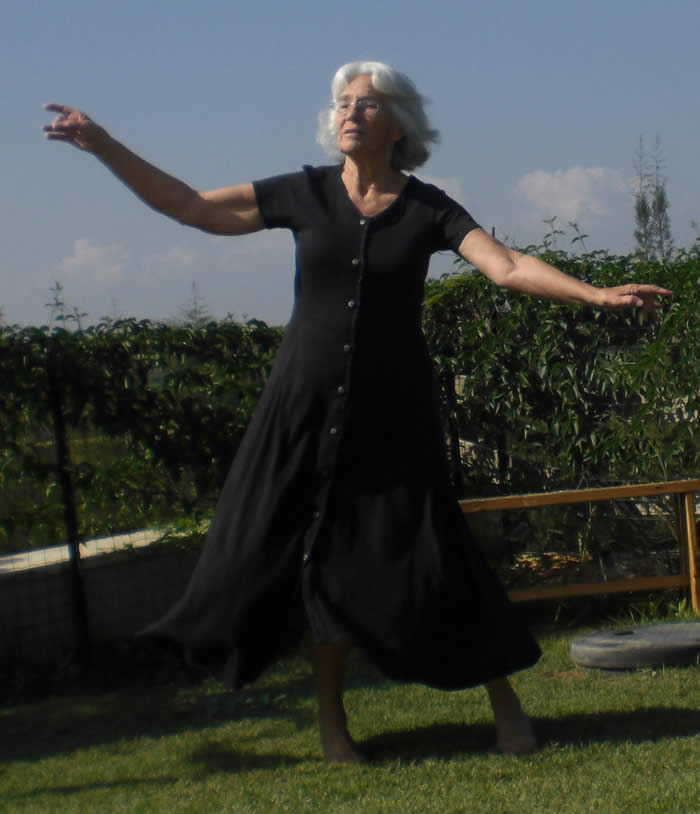 |
|
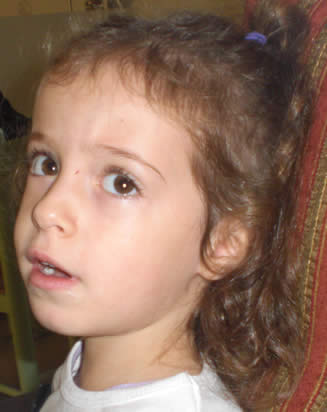
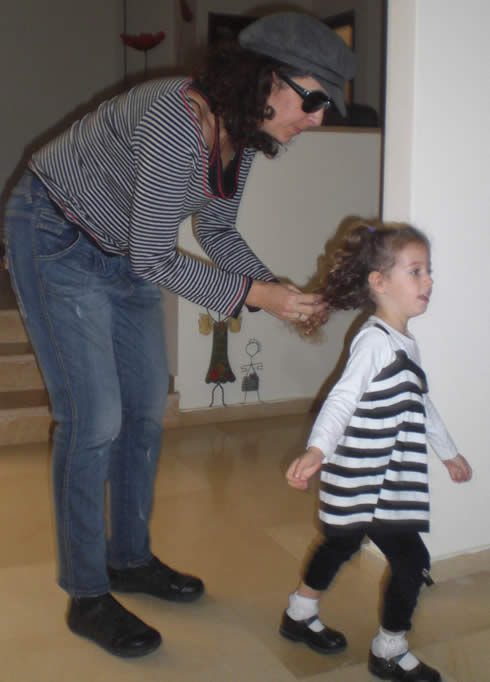 Morning routine of a zest-full child
Morning routine of a zest-full child
in an optimal material AND human environment.
"Do you want a vitaminchik?"
Vitaminchiks are healthy and tasty,
And while chewing them, she leaves for kindergarden
- in her pretty dress of Shabbat-Eve 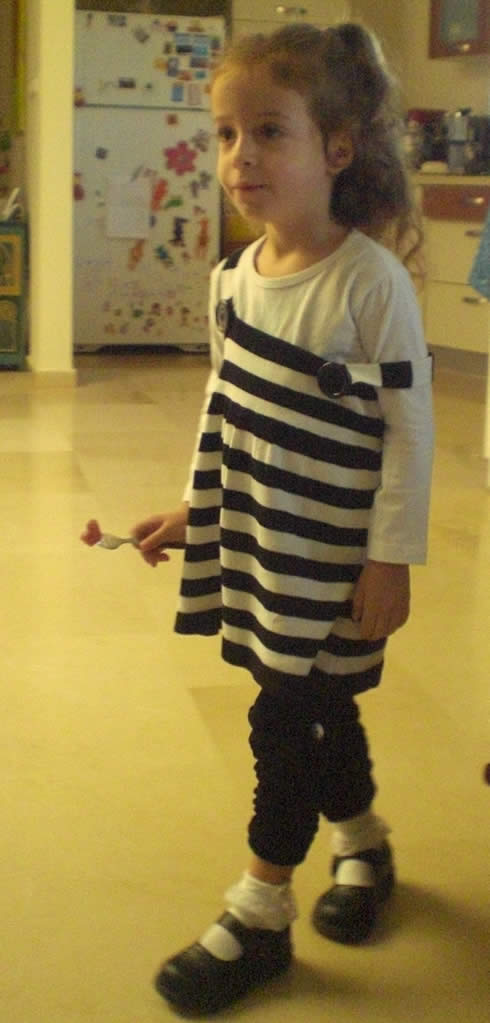 |
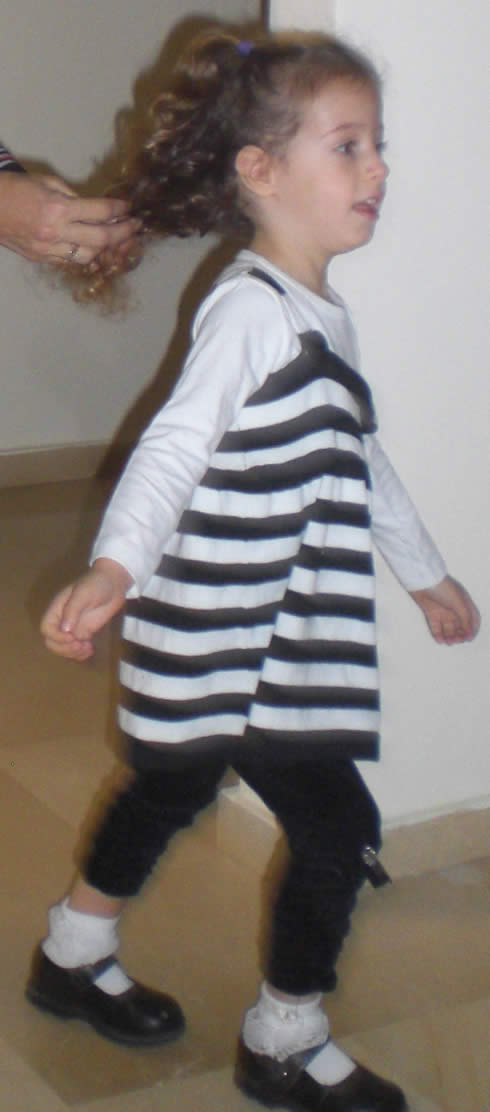
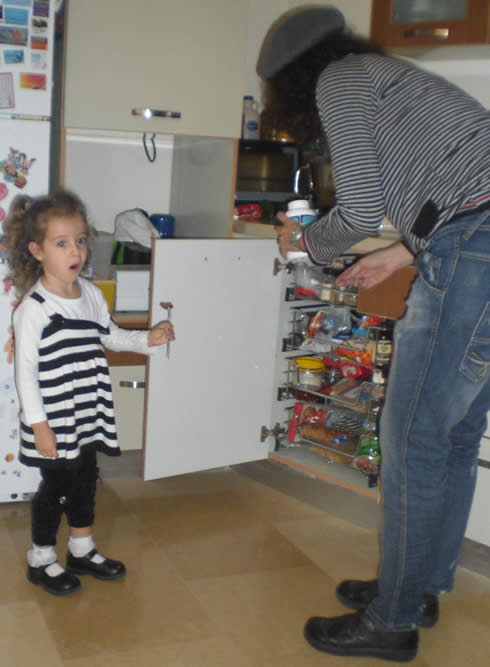 |
But then
Imma remembers,
that "again we haven't cut your
fingernails "
a pretty TV scene distracts Mika from
her fear,
but a pain does occur and some tears do roll down.
Has ever anyone photographed the cutting
of nails?
But "God is in the nails of the details"....
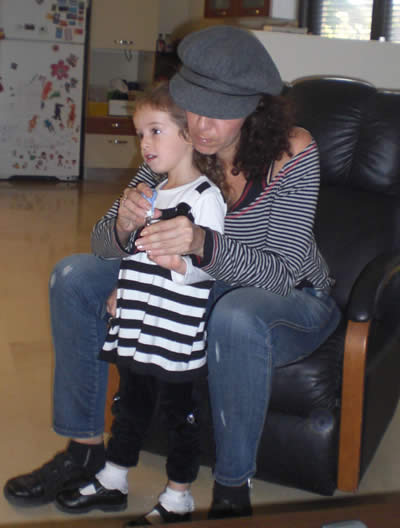
|
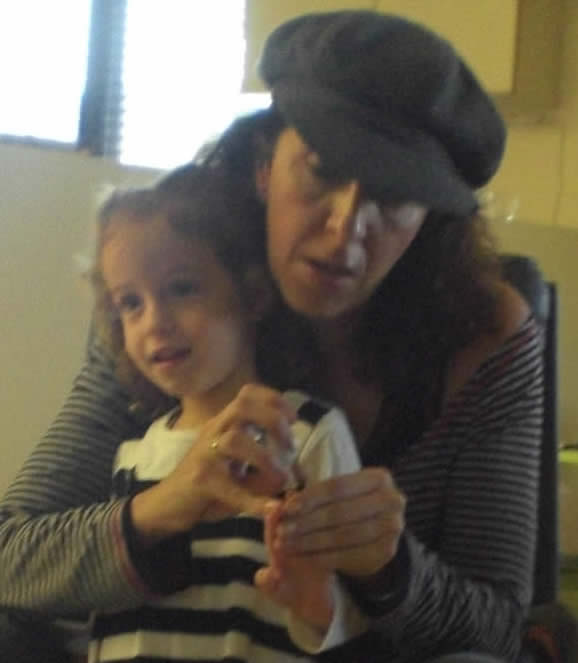 |
And
then they leave the house and enter the car,
while I am singing a modification of my little song:
shalom, shalom, shalom, shalom, le-hitra'ot,
le-hitra'ot
after Mika had finally become fed up with
the old one.
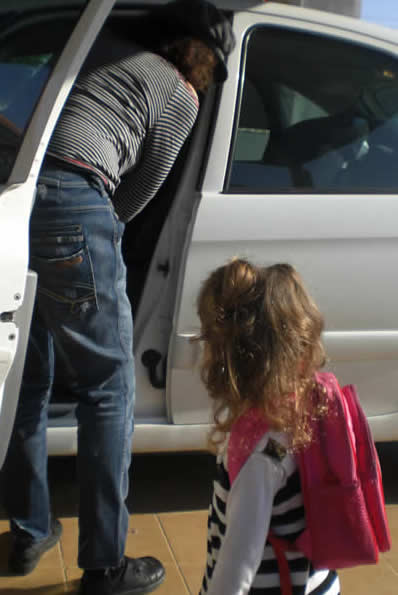
|
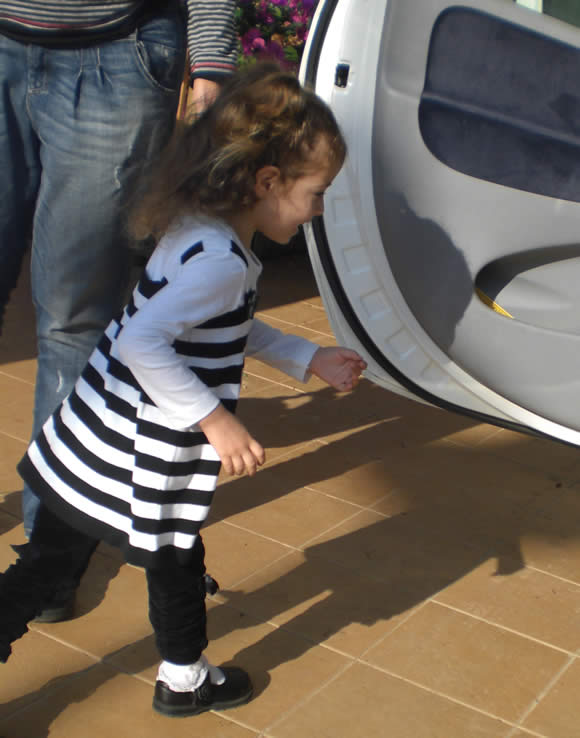 |
"Driving
Backward into the Future" = "Closeups
to the Past" = Healing&Harvesting my Past
March 2006
I finally want to insert my summary
of what I learnt from Aya Goldhammer,
the first pupil-teacher of Paula Garbourg [see
my grate-full page about her!]
who after a question on the phone concerning the severe problem
in my right groin,
had invited me to a private workshop into her house at Shilat.
In March 2006, I received a lesson twice a day for 7 days,
and everything,
boarding at her house, eating on her table, exercising under
her guidance
was given to me for free!

I don't want more than i have, as
long as not everybody can manifest this.
What I do want - even if not everybody can manifest it now
,
is feeling wonderful in my Body all the time

My
1987 song
"Jede Faser meines Wesens
jeder Atem ein und aus
Zellen, Muskeln, Kapillaren
alle wissen um dies eine,
dass da wirken jetzt im Leben alle Kraefte meiner Liebe"
And the third stanza:
"Meiner Seele stetes Sehnen
jede Regung meines Geists
all mein Spueren, Hoeren, Sehen
wandeln stroemend sich in eines
in das Wirken meines Lebens aus den Kraeften meiner Liebe."

Body knows how to heal Creation,
and soon you will find that power within you
[see Godchannel: Who
is the Healer?]

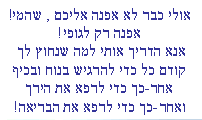


[Inserted on November
11]



[Inserted on
November 16]



(13)
"in order to make it easier
for the body, but don't do, just listen to what wants to move
and how!"
d:
"Well, this one [of
which you' ve never been aware!]
we just now brought down from the "Boiden" (Yiddish
for storage place under the roof)
[inserted on Dec.
9] [and on Dec.10]

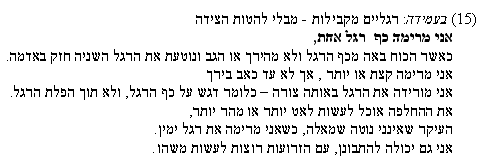
(15)
[inserted on
Dec.11]



(18)
[inserted on December
18]




(22)
"Moving tongue between teeth and gums within closed lips"
[Inserted on
November 16]
[I once called Aya concerning a stiff
neck. this key loosened it quickly!]
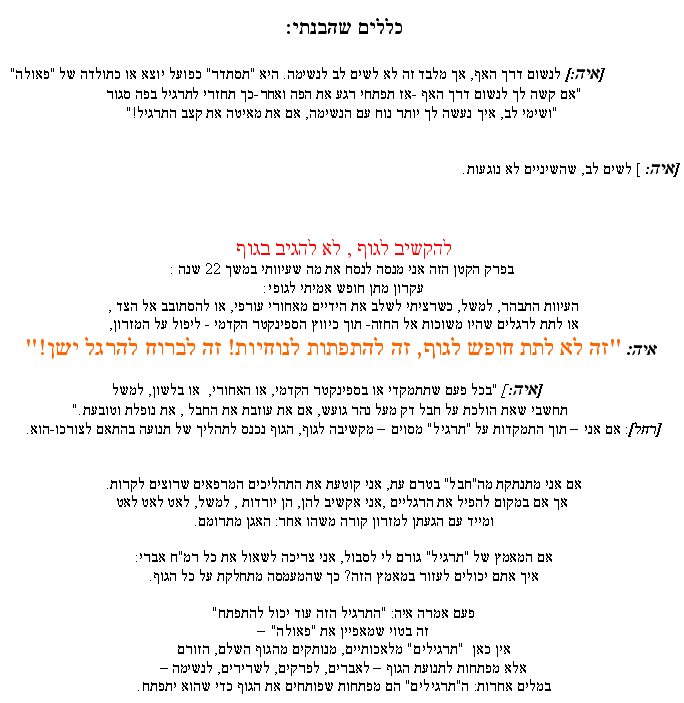
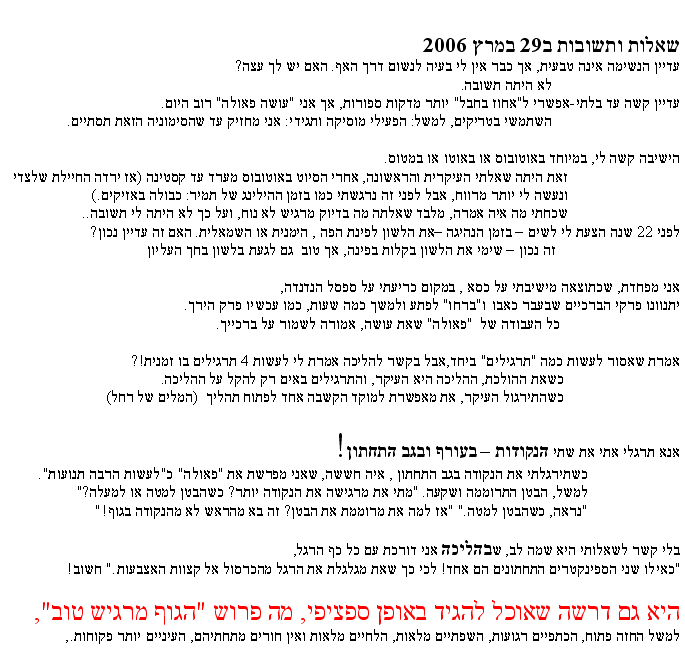
I prepared this summary for print in March 2006.
I'll now learn it again and apply it - day by day!
|
As to our short outing to the sheep
- before the afternoon nap of all of us: see more images on Oct.
28
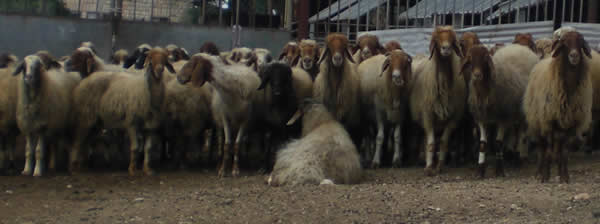
More scenes with Mika's activities yesterday
|
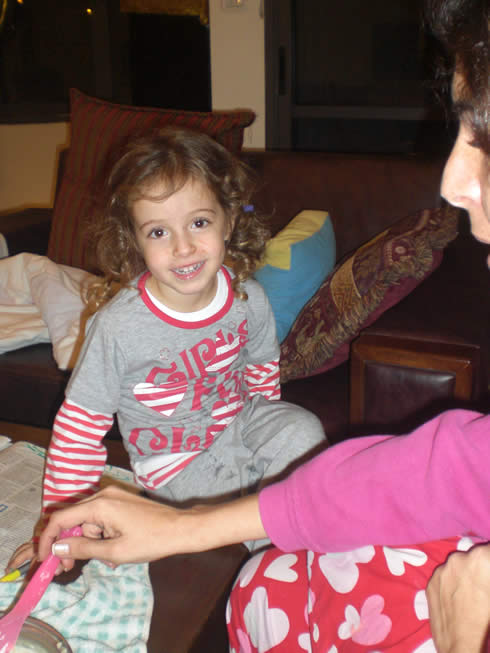 Yet another place, where dinner can be
taken..
Yet another place, where dinner can be
taken.. |
Amazing Singing while dressing for the night - the
two songs, Mika wanted to sing (see below) are not at all for her age
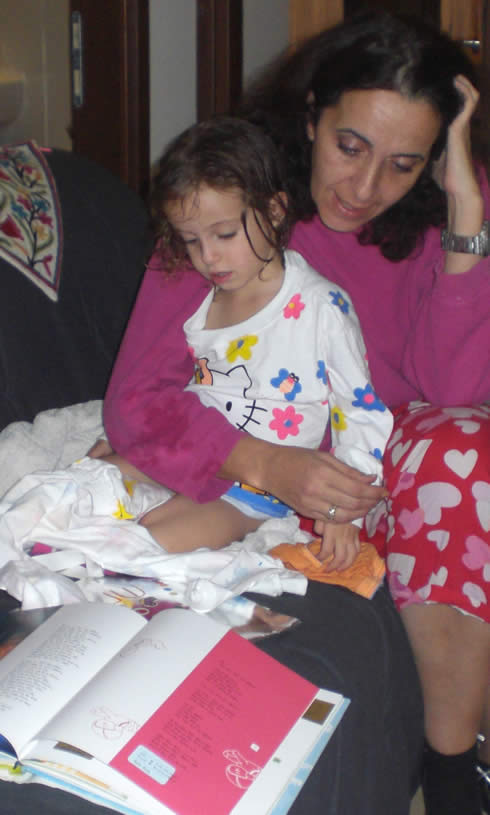 Singing two songs, which are - in lyrics
and tune -
Singing two songs, which are - in lyrics
and tune -
far above the minds of little kids |
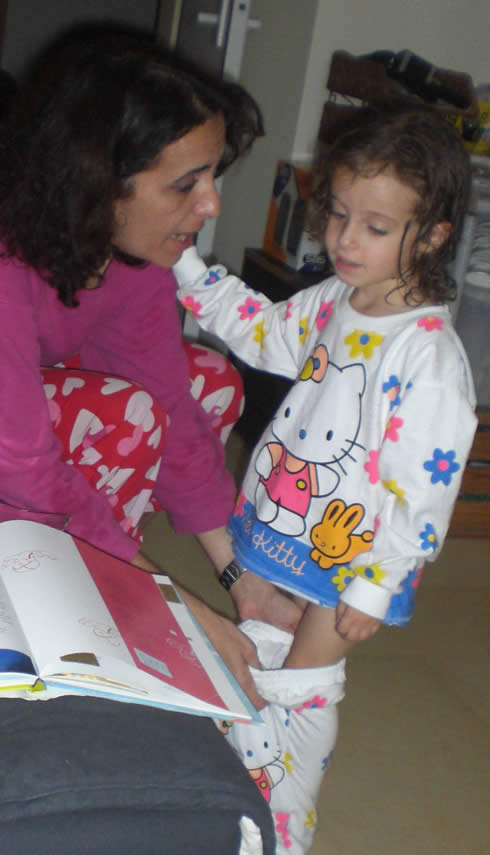 |
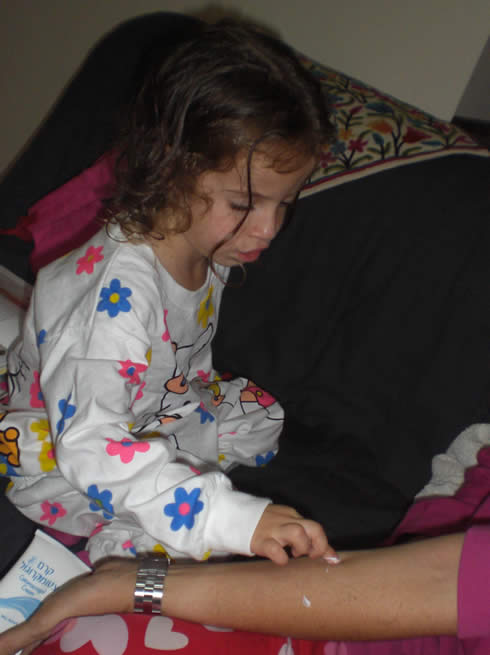 Spiraling an ointment against insects
on Imma's arm
Spiraling an ointment against insects
on Imma's arm |
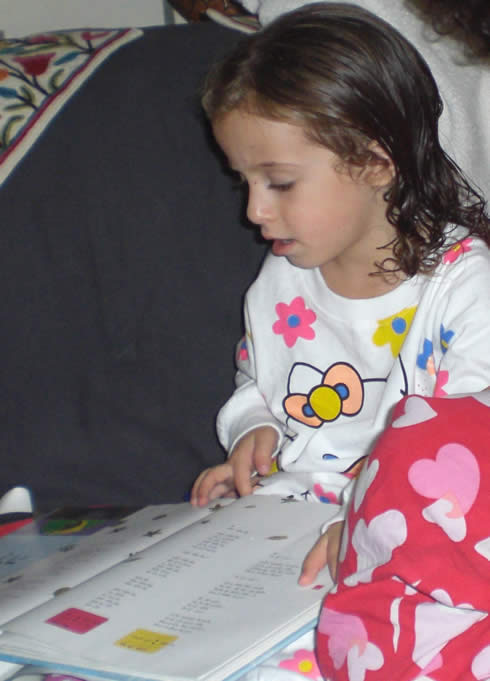 |
songs of the day
 |
"Uf Gozal"-"Fly,
nestling"
Lyrics: Arik Einstein
tune: Miki Gavrielov
video
with Arik Einstein
Parents talk to their grownup Child
and to each other about growing old together
I heard it the first time from David
& Eilat
perhaps in 1994..
Now Mika is so enthused by it,
when Efrat sang it to her the first time,
that already during repetitions
she could sing part of the chorus.
As with all other songs -
since we cannot reach her pitch,
nor she can reach our pit,
she sings an octave higher,
naturally, organically.
What was amazing in this song,
was also,
that when the line was reached:
"fly to where you feel like"
"tus le'an shae-ba lekha",
she changed it to:
"tus le'an shae ata rotzae",
since her mother hates it,
when she uses the common idiom:
"ba li" and "lo ba li",
i.e. "it comes to me" or "it doesn't
come to me",
meaning: "I feel like" having, or doing
or "I don't feel like" having or doing.
|
|
|
|
|
2008
October 31
Cheshvan
2
Friday-Shabbat-Eve
|
|
|
Actions:
Kisslog: healing-creating
TV & Internet: learning
Dancing, Playing |
Interactions:
with Mika and Efrat
visit
at sheep farm neighbors
Rina & David Cohen, Ahmed, Arab deaf-mute shepherd from
Budrus
Skype from Immanuel |
|
Intro
to
k.i.s.s.-l o g + all
dates
~ Library of
7 years ~ HOME
~ contact ~
SEARCH
( of Latin characters only!) my
eldest granddaughter's video-gallery
whole&full-filled,
never perfect&complete 
Keep It
Simple Sweetheart
K.I.S.S.
- L O G 2
0 0 8
|



